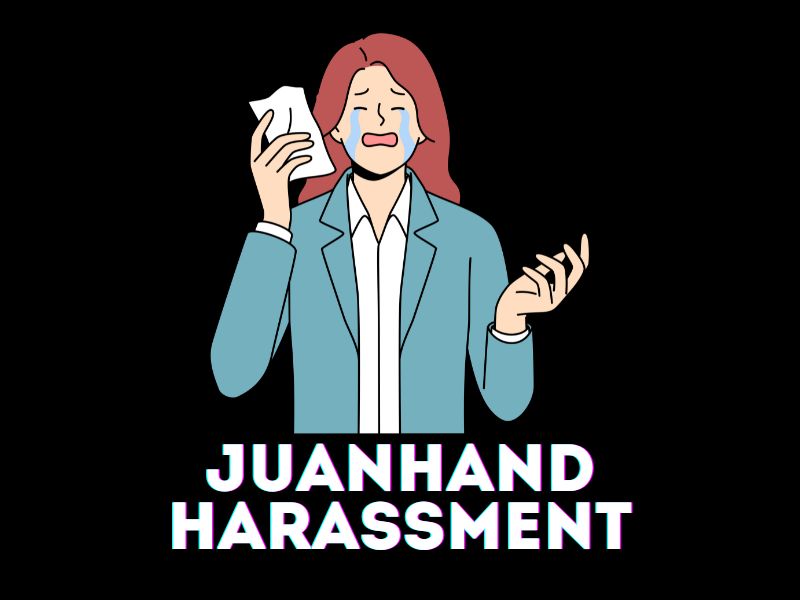- Understanding Juanhand Harassment
- Juanhand Harassment Reviews: Insights and Analysis
- Common Juanhand Complaints
- Addressing Juanhand Harassment in the Philippines
- Recent Trends: Juanhand Harassment in 2023 and 2024
- The Need for Investigation and Accountability
- Steps to Combat Juanhand Harassment
- Empowering Victims: Seeking Justice
- Employer Responsibilities in Addressing Juanhand Harassment
- Educational Initiatives: Raising Awareness
- Community Engagement and Support
- The Role of Technology in Tackling Juanhand Harassment
- Overcoming Barriers to Reporting
- Conclusion
- FAQs
Harassment, in any form, is a pervasive issue that requires collective attention and action. In recent years, the phenomenon of Juanhand harassment has gained significant traction, necessitating a deeper understanding and proactive measures to address it effectively.

Understanding Juanhand Harassment
Juanhand harassment encompasses various forms of unwelcome behavior, including verbal, physical, and psychological, targeted at individuals based on their identity or perceived differences. It often manifests in workplaces, schools, and online platforms, creating hostile environments for victims.
Juanhand Harassment Reviews: Insights and Analysis
Reviews and testimonies play a crucial role in shedding light on the prevalence and impact of Juanhand harassment. Analyzing these reviews provides valuable insights into the lived experiences of victims and underscores the urgency of addressing the issue.
Common Juanhand Complaints
Victims of Juanhand harassment frequently report instances of discrimination, microaggressions, and intimidation. These complaints not only affect the well-being of individuals but also contribute to a culture of fear and inequality.
Addressing Juanhand Harassment in the Philippines
In the context of the Philippines, Juanhand harassment presents unique challenges shaped by cultural norms and legal frameworks. Understanding these nuances is essential for crafting effective solutions and supporting victims.
Recent Trends: Juanhand Harassment in 2023 and 2024
The landscape of Juanhand harassment is constantly evolving, with each passing year bringing new challenges and developments. Examining recent trends provides valuable insights into the progress made and the areas that require further attention.
The Need for Investigation and Accountability
Investigating allegations of Juanhand harassment is paramount to ensure justice for victims and hold perpetrators accountable for their actions. Creating transparent and robust investigation processes is essential for fostering a culture of accountability.
Steps to Combat Juanhand Harassment
Prevention is key in combating Juanhand harassment. Implementing comprehensive training programs, establishing clear reporting mechanisms, and fostering a culture of respect and inclusion are critical steps in creating safer environments.
Empowering Victims: Seeking Justice
Victims of Juanhand harassment deserve support and access to justice. Legal avenues, support organizations, and resources play a crucial role in empowering victims to seek redress and reclaim their agency.
Employer Responsibilities in Addressing Juanhand Harassment
Employers have a duty to provide safe and inclusive work environments free from harassment. Implementing anti-harassment policies, conducting regular training, and responding promptly to complaints are essential in fulfilling this responsibility.
Educational Initiatives: Raising Awareness
Raising awareness about Juanhand harassment is essential for fostering empathy, understanding, and solidarity. Educational initiatives, such as workshops, seminars, and awareness campaigns, play a crucial role in challenging harmful attitudes and behaviors.
Community Engagement and Support
Communities play a pivotal role in addressing Juanhand harassment and supporting victims. By fostering a culture of empathy, advocacy, and collective action, communities can create safe spaces where individuals feel empowered to speak out against harassment.
The Role of Technology in Tackling Juanhand Harassment
Technology offers both opportunities and challenges in tackling Juanhand harassment. While it provides platforms for reporting and intervention, it also poses risks such as online harassment and cyberbullying that require proactive measures to address.
Overcoming Barriers to Reporting
Fear of retaliation and stigma often deter victims from reporting instances of Juanhand harassment. By addressing these barriers through robust support systems and protection measures, individuals can feel empowered to come forward and seek help.
Conclusion
Juanhand harassment is a complex issue that requires a multifaceted approach to address effectively. By understanding its nuances, empowering victims, and fostering a culture of accountability and respect, we can create safer environments for all.
FAQs
Juanhand harassment refers to various forms of unwelcome behavior targeted at individuals based on their identity or perceived differences.
Juanhand harassment is a significant issue in the Philippines, with many individuals experiencing discrimination, microaggressions, and intimidation.
Common complaints include instances of discrimination, microaggressions, and intimidation in workplaces, schools, and online platforms.
Employers can address Juanhand harassment by implementing anti-harassment policies, conducting regular training, and responding promptly to complaints.
Individuals can support victims by providing empathy, understanding, and solidarity, and by fostering a culture of advocacy and collective action within their communities.